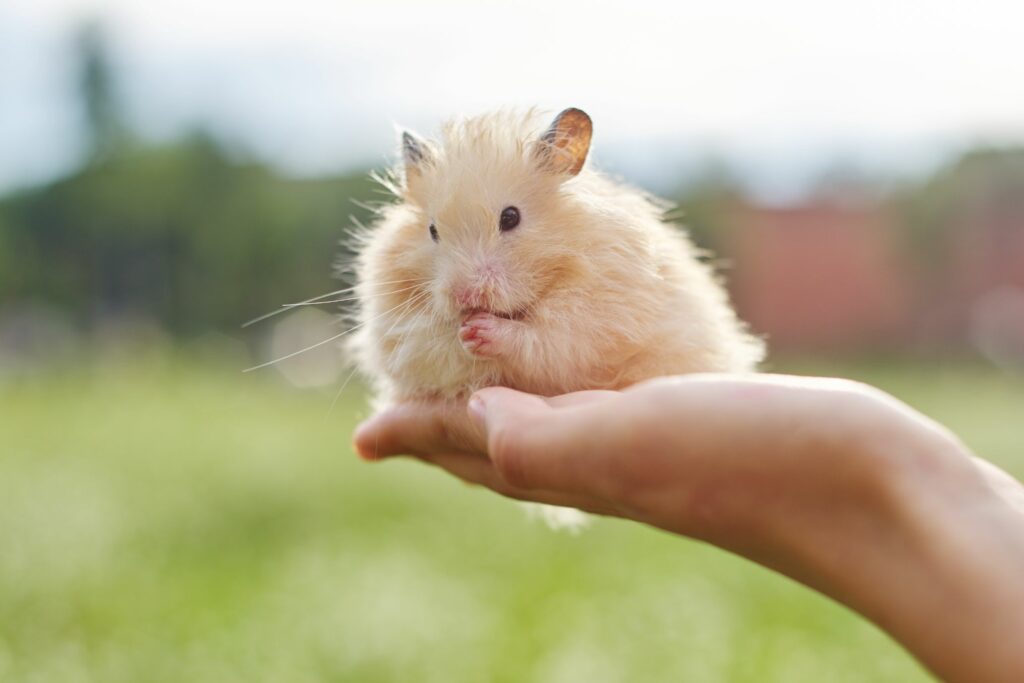Hamsters are one of the most popular pets around the world because of their cute appearance, small size, and friendly nature. However, as a veterinarian, I have seen many unusual and sometimes, concerning things about these adorable creatures. One of the most unexpected things that many hamster owners become familiar with is coprophagia. In this blog post, I will explain what coprophagia is, why hamsters engage in this behavior, and the benefits and concerns associated with it. I will also outline some factors that may trigger coprophagia in hamsters and offer tips on how to prevent it.

What is coprophagia?
Coprophagia is an animal’s behavior of eating their feces or those of other animals. While this behavior may seem disgusting to humans, it is relatively common in the animal kingdom, including many domesticated and wild animals. For some animals, such as rabbits and rodents, eating feces is a normal and essential behavior.
The prevalence of coprophagia in hamsters
Hamsters are also known for their coprophagic behavior. In fact, coprophagia is a healthy and natural behavior in hamsters. Wild hamsters engage in this behavior primarily to reduce waste and keep their nests clean. Domesticated hamsters, on the other hand, may engage in this behavior for a variety of reasons, some of which I’ll discuss in the following section.
Reasons why hamsters eat their poop
Importance of gut bacteria
One of the key reasons hamsters eat their poop is to get the essential gut bacteria they need for proper digestive health. The first feces that a hamster produces after digestion are called cecotropes. These cecotropes are high in beneficial bacteria, vitamins, and nutrients, which help in the proper digestion of food.
Inadequate nutrient absorption
Another reason why hamsters may engage in coprophagia is due to inadequate nutrient absorption. Hamsters have a very short digestive tract, that comes with a higher risk of undigested food passing through their system. This can lead to a lack of essential nutrients in their diet, making them more likely to eat their feces to get those missing nutrient benefits.
Mimicking a natural survival instinct
Another reason why hamsters eat their feces is due to their natural survival instincts. Wild hamsters often eat their feces to reduce the scent of their feces, preventing predators that might be nearby from finding them. Domesticated hamsters may mimic this behavior unconsciously.
Benefits of coprophagia for hamsters
Increased nutrient absorption
As I mentioned earlier, coprophagia helps hamsters absorb essential nutrients and vitamins from their cecotropes, making their diet more balanced and beneficial to their overall health.
Improved digestive health
By eating their cecotropes, hamsters ensure that they maintain a healthy bacterial balance in their digestive system. This is because the cecotropes contain beneficial gut bacteria that contribute to healthy digestive health.
Self-cleaning mechanism
Hamsters are relatively clean animals, and eating their feces is another way for them to keep themselves clean. By consuming their cecotropes, hamsters reduce waste and keep their living environment clean.
Factors that may trigger coprophagia in hamsters
Stressful environments
Stressful environments, such as overcrowding, inadequate housing, or aggressive companions, can trigger coprophagia in hamsters. Hamsters may also engage in this behavior to cope with their stress levels.
Inadequate nutrition
Hamsters may engage in coprophagia if they are not getting the essential nutrients they need from their diet. A shortfall in the essential vitamins and minerals in their food can lead to this behavior and other dietary complications.
Medical conditions
Certain medical conditions, such as diarrhea, can trigger coprophagia in hamsters. This behavior may also be a sign of other underlying medical problems such as intestinal infections, dental problems, or tumor growth.
When Is it a Cause of Concern?
Frequency & Amount
It is natural for hamsters to engage in coprophagia, but if they do it too frequently, it may be a cause for concern. Frequent or excessive coprophagia can be a sign of an underlying medical condition that needs to be addressed.
Abnormal Poop-eating Habits in hamsters
If you notice that your hamster is eating the standard fecal matter instead of the cecotropes, this may be an abnormal sign. In this case, it is necessary to consult with a veterinarian to rule out any medical conditions or nutritional deficiencies.
Medical Conditions That Cause Coprophagia
As I mentioned earlier, coprophagia can also be a symptom of an underlying medical condition. If your hamster is engaging in this behavior, it is essential to seek veterinary care promptly to determine the cause of this behavior.
Preventing Coprophagia in Hamsters
Dietary Changes
Ensure that your hamster is getting a well-balanced diet with essential vitamins and nutrients. A balanced diet will make sure that your hamster does not need to resort to coprophagia to meet its nutritional needs.
Environmental & Psychological Enrichment
Create a comfortable, secure, and enriched environment for your hamster to reduce stress levels that typically trigger coprophagia. Ensure your hamster has plenty of space and toys to keep themselves entertained.
Regular Health Check-ups
Regular health check-ups with a qualified veterinarian are necessary to keep your hamster in good health. A vet can detect any underlying medical conditions that may trigger coprophagia, and recommend an appropriate course of action.
Conclusion
In conclusion, coprophagia may seem gross to us humans, but it is a natural and essential behavior for hamsters. While it may be concerning at times, especially if it occurs too frequently or if your hamster is not eating their cecotropes, it is often easy to manage with a balanced diet, enriched environment, and regular check-ups. It is also necessary to remember that coprophagia is not always a problematic behavior but one that is vital for a healthy and happy hamster life.
- How Long Do American Eskimo Dogs Live? Important Factors and Care Tips - September 29, 2023
- Do American Bulldogs Need Grooming? Essential Tips and Care Guidelines - September 29, 2023
- Do Bengal Cats Enjoy Playing? Essential Tips for Keeping Them Active - September 29, 2023